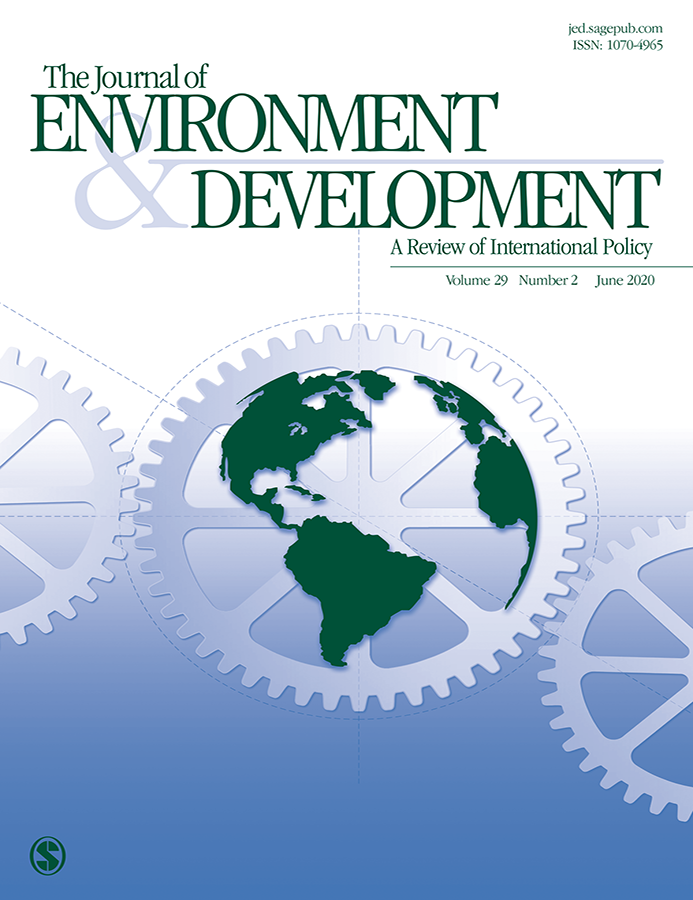Ver ítem
- xmlui.general.dspace_homeCentros Regionales y EEAsCentro Regional Salta - JujuyEEA SaltaArtículos científicosxmlui.ArtifactBrowser.ItemViewer.trail
- Inicio
- Centros Regionales y EEAs
- Centro Regional Salta - Jujuy
- EEA Salta
- Artículos científicos
- Ver ítem
Native Forests and Agriculture in Salta (Argentina) : conflicting visions of development
Resumen
Despite much deforestation in the past, the northwestern Argentinean province of Salta still has more than 6 million hectares of native forests. Land use conversion for agriculture is threatening these forests and the survival of indigenous populations and small-scale farmers. In November 2007, Argentina’s National Congress passed a law to regulate the management and conservation of native forests. This “Forest Law” required provincial governments to
[ver mas...]
Despite much deforestation in the past, the northwestern Argentinean province of Salta still has more than 6 million hectares of native forests. Land use conversion for agriculture is threatening these forests and the survival of indigenous populations and small-scale farmers. In November 2007, Argentina’s National Congress passed a law to regulate the management and conservation of native forests. This “Forest Law” required provincial governments to implement comprehensive and participatory Land Use Planning Processes (LUPPs). In this article, we describe and analyze, within a political ecology framework, the LUPP carried out in Salta. We focus on the conflicts derived from the different visions of development held by the interest groups involved, and we highlight some contradictions between their discourses and practices. We argue that “development” or “progress,” understood as a process of wealth and power accumulation linked to the possession of land and the production of agricultural commodities, was the leading ideology of political and economic elites in Salta during the LUPP. This ideology, and the established institutional power system behind it, was challenged when the National Supreme Court of Justice decided to suspend logging and deforestation activities on land claimed by marginalized ethnic and socioeconomic groups. We assess the implications of this ruling for the conservation of native forests and local livelihoods. As the final outcome of this case is still uncertain, a number of possible scenarios are presented and discussed.
[Cerrar]

Autor
Seghezzo, Lucas;
Volante, Jose Norberto;
Paruelo, José María;
Somma, Daniel Jorge;
Buliubasich, Emiliana Catalina;
Rodriguez, Héctor E.;
Gagnon, Sandra;
Hufty, Marc;
Fuente
Journal of Environment & Development 20 (3) : 251-277 (2011)
Fecha
2011-09
Editorial
SAGE Publishing
ISSN
1552-5465
1070-4965
1070-4965
Formato
pdf
Tipo de documento
artículo
Palabras Claves
Derechos de acceso
Restringido
 Excepto donde se diga explicitamente, este item se publica bajo la siguiente descripción: Creative Commons Attribution-NonCommercial-ShareAlike 2.5 Unported (CC BY-NC-SA 2.5)
Excepto donde se diga explicitamente, este item se publica bajo la siguiente descripción: Creative Commons Attribution-NonCommercial-ShareAlike 2.5 Unported (CC BY-NC-SA 2.5)

